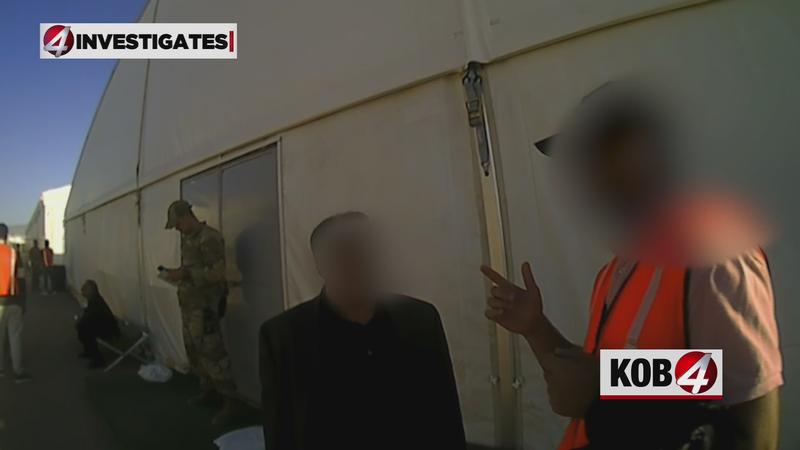4 Investigates: Policing at the camp housing Afghan refugees in New Mexico
[anvplayer video=”5078537″ station=”998127″]
Thousands of Afghan allies have been funneling through New Mexico to their new homes in the United States of America after the U.S. abruptly ended its longest war in the Middle East at the end of the summer.
Since then, the military has had the unprecedented task of setting up temporary facilities to house thousands of refugees while they await processing.
At Holloman Air Force Base they are over the halfway point with the number of people they need to house until they are resettled. However, the months have not been without some instances of conflict.
The people
7,100. That’s how many Afghan refugees have collectively come through Oman Amid, the village that translates to Peace and Hope. When KOB 4 toured the village in November, Holloman AFB officials said half of the current population were kids. More than 4,000 people have already been successfully resettled across the country. Leaving fewer than 3,000 people still living on the camp awaiting a sometimes months-long process to be processed and placed by the State Department.
According to the State Department, only 29 Afghans have resettled in New Mexico and a spokesperson for Holloman AFB said they have not had any guests leave the base unsupervised prior to resettlement.
The Department of Homeland security said everyone had gone through, “rigorous, multi-layered screening and vetting processes that involve biometric and biographic screenings conducted by intelligence, law enforcement, and counterterrorism professionals from multiple federal agencies.”
During KOB 4’s tour, officials at Holloman said every Afghan adult had been vaccinated against COVID-19 as well any other shots recommended by the CDC.
Enforcing the law
The military’s role is a humanitarian one, according to Joshua Kastenberg. He is a UNM Law professor, an Air Force veteran and has a lifetime of experience in military law.
"Our obligation is to treat them as allies, which is what they were for two decades,” he said.
But, what happens when someone breaks the law?
”The public should not look at the military as a police force,” Kastenberg said.
The founders of our nation worried an army could be used against a country’s own people, according to Kastenberg. “After the Civil War, Congress took heed of that ancient fear and passed the Posse Comitatus Act which prevents the army, and later the Air Force, from acting as a police force.”
While military members at Holloman can temporarily detain civilians, including their Afghan guests, they legally cannot enforce the law. Which is why calls for service on the Aman Omid Village have been answered by the New Mexico State Police.
Investigations
64. That is how many times NMSP have been called to investigate an incident at Oman Amid Village between Sept. 9th and Dec. 14th. There have been a variety of different calls for service, ranging from fights, to prostitution. KOB 4 found most calls were for battery, followed by domestic disputes, but many calls came down to cultural misunderstandings, or not fully understanding the law.
None of the calls for service ended with an arrest.
For example, one child abuse call showed a 14-year-old girl was yelled at by her parents for talking with a boy, which “brought shame,” to her family, according to the report. However, the investigation revealed no physical abuse occurred while in America.
Another NMSP report shows a man who identified as a high ranking Afghan army official slapped an interpreter for calling him an, “old donkey,” and a “beggar.” After explaining the law to both men they decided no charges would be filed.
Some cases are still under investigation.
NMSP said a rape kit was performed on an 11-month-old in a possible sexual assault investigation. Investigators are awaiting DNA results in that case.
The only case that has been forwarded to the 12th District Attorney is a possible sexual assault on an 18-year-old man, according to the NMSP. The DA’s office said that case is still under review.
In an email, a spokesperson for the The Department of Homeland Security said, “Incidents of crime among our Afghan guests at Holloman AFB and other facilities have been isolated, which is consistent with studies that have consistently found that crime among refugee populations is lower than crime in the general population.”
